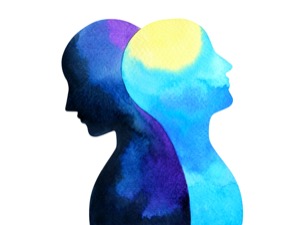
Bipolar disorder is a disabling condition that prevents millions of people from being able to handle everyday activities, including their ability to earn a living. The unfortunate reality is that bipolar disability claims for mental impairments such as bipolar disorder are frequently rejected.
Even the most medically supported and valid claims for bipolar-related disabilities may be denied initially. This is more reason why claimants should to seek the help of a skilled and experienced disability lawyer.
About Bipolar Disability
Also known as manic depression, the condition is a brain disorder that can cause excessive mood swings, where the person cycles between depressive states and high states (mania). These cycles can occur over long periods or may occur at the same time.
During mania, the person may experience euphoria, rage, sleeplessness, and rushed thoughts and speech. In severe manic episodes, the patient may become delusional or suffer hallucinations. In the depressive state, the person suffers extreme feelings of sadness, depression, hopelessness, anxiety, too much or too little sleep, and suicidal thoughts. These unusual shifts in energy levels lead to an overall inability to function normally.
Many factors are cited as causes of bipolar disability:
- Imbalance in brain chemicals, called neurotransmitters
- Hormonal imbalance
- Genetics
- Traumatic experiences or extreme stress
Denied Bipolar Disorder Disability Claims for LTD Insurance
Mehr Fairbanks Trial Lawyers aggressively represents insurance policyholders that have had bipolar disability claims unfairly denied. We can help you fight the insurance company’s denial whether you personally bought the policy, or the policy was issued through your employer.
Many disability insurance policies contain language that classifies mental impairments such as bipolar disorder, as a mental nervous condition. Defined as such, typically only 24 months compensation is allowed. However, this may not be accurate if the bipolar disorder is a biologically based illness. This then becomes an argument of an unacceptable assignment of the disorder in the policy language.
Insurance companies will use many other tactics to defend their decision to deny your award of disability benefits. Claims of misdiagnosis, lack of medical evidence, or clauses in the policy language about pre-existing conditions are common.
Strategies to overturn denied claims for bipolar disorder disability will vary greatly depending upon which type of long term disability policy you are fighting.
We understand the reasons and excuses that insurance companies use to deny claims for mental disorders. Let us fight to hold your insurance company accountable, so you may recover the benefits you are due.
Do you have individual or group disability claim questions?
If you have filed or are preparing to file an individual or long-term disability insurance claim – or if your benefits have been wrongfully delayed or denied – Mehr Fairbanks Trial Lawyers can help you retain your rights and benefits today by calling toll-free: 800-249-3731.
 Kentucky ERISA Disability & Life Insurance Claim Lawyers
Kentucky ERISA Disability & Life Insurance Claim Lawyers

